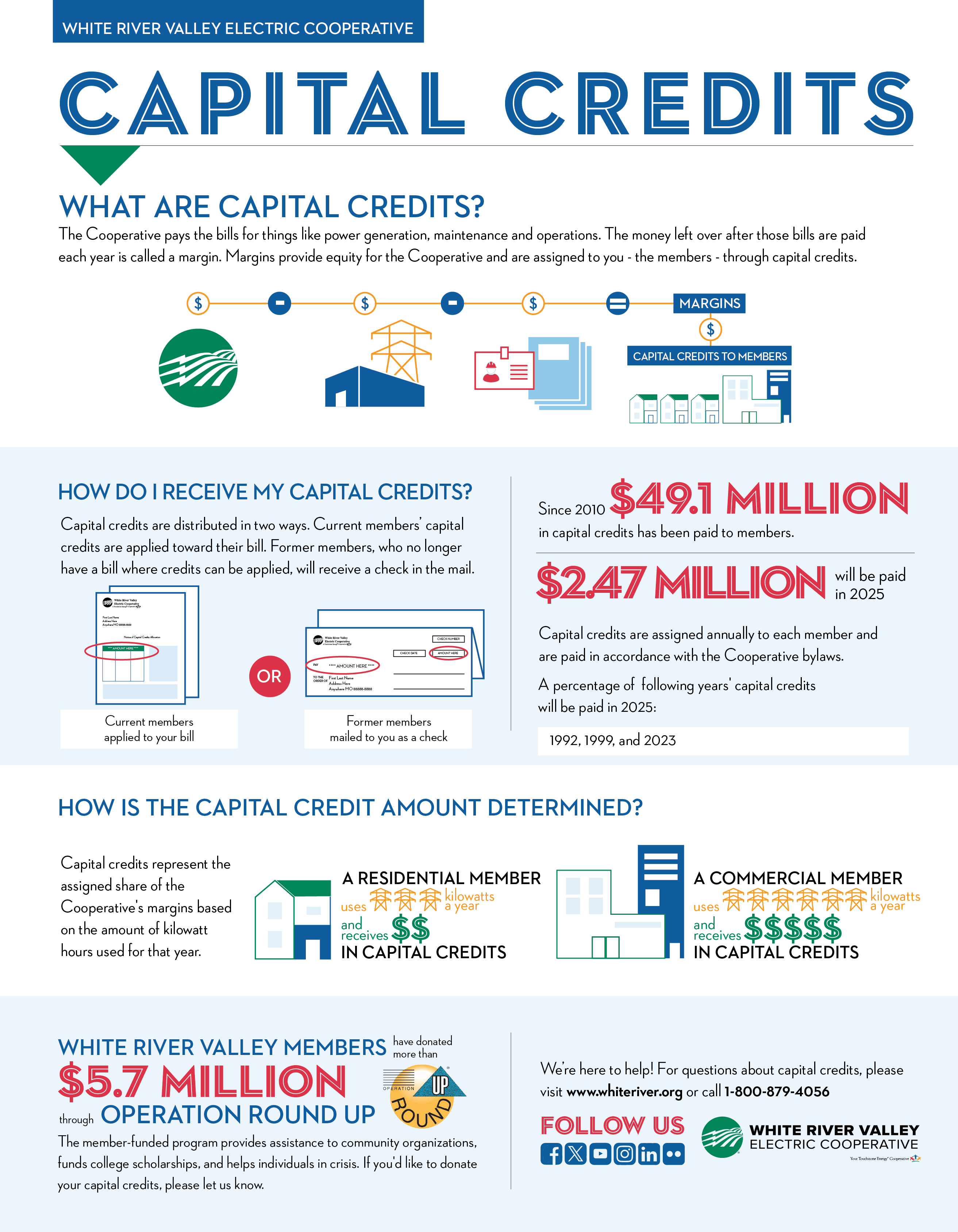
Capital Credits
The Cooperative pays the bills for things like power generation, maintenance and operations. The money left over after those bills are paid each year is called a margin. Margins provide equity for the Cooperative and are assigned to members through capital credits. We’re here to answer your questions about capital credits.
Click here to print out the Capital Credits Claim Form.

Capital Credit FAQs
-
The Cooperative pays the bills for things like power generation, maintenance and operations. The money left over after those bills are paid each year is called a margin. Margins provide equity for the Cooperative and are assigned to you – the members – through capital credits.
-
Capital credits are distributed in two ways. Current members’ capital credits are applied toward their bill. Former members, who no longer have a bill where credits can be applied, will receive a check in the mail.
-
Since 2010, WRVEC has paid $49.1 million in capital credits.
-
In 2025, $2.47 million in capital credits will be paid.
-
A percentage of following years’ capital credits will be paid in 2025: 1992, 1999, and 2023.
-
Capital credits represent the assigned share of the Cooperative’s margins based on the proportionate amount of kilowatt hours used for that year.
-
Capital credits can be donated to Operation Round Up. This program provides assistance to community organizations, funds college scholarships, and helps individuals in crisis. All assistance is awarded to local recipients.
-
We are required by our lending institution to meet certain financial requirements to show we are financially stable. Any margins are then assigned back to the members and paid in accordance to the bylaws.
-
Each year the decision to pay capital credits is made based on the financial stability of the cooperative. The Board selects the manner, method and timing of capital credit payments.
-
Every member that received electric service from WRVEC in any of the following years will be issued a percentage of the following years’ capital credits: 1992,1999, and 2023. In some instances, the member may have only received service from the cooperative for a short period of time.